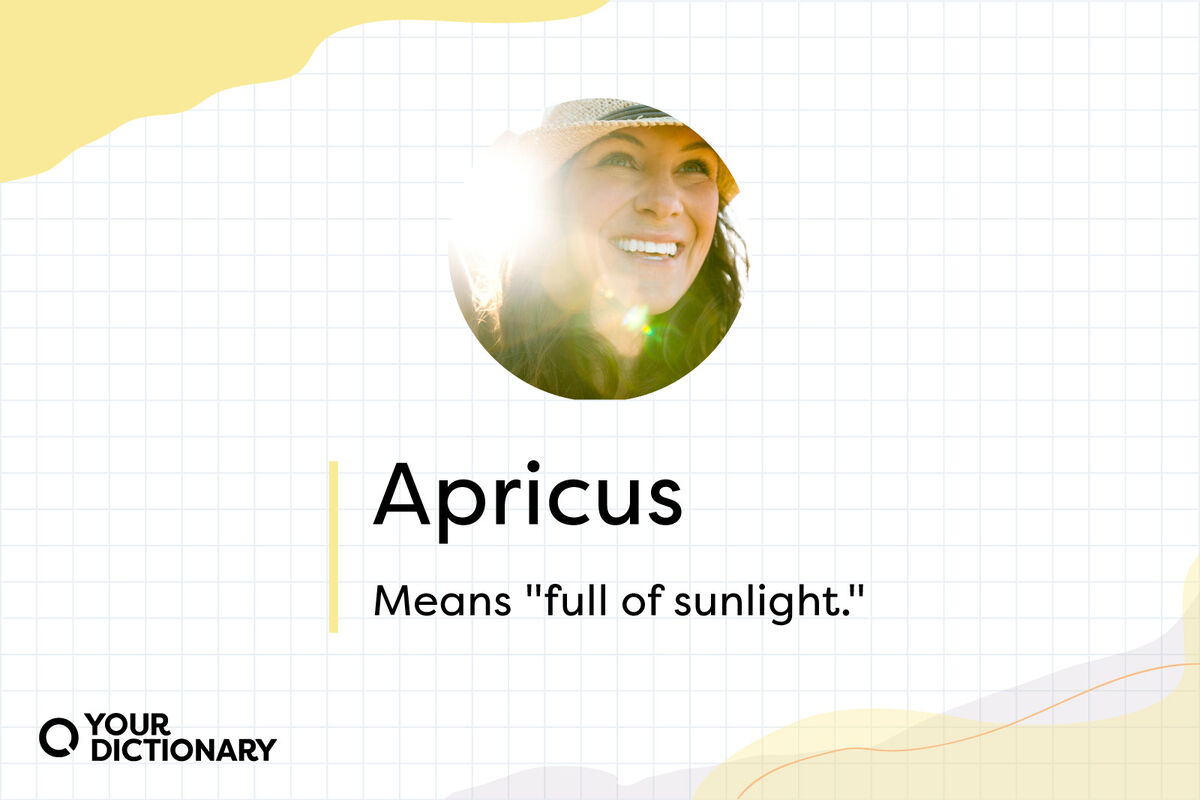
Some of the loveliest languages in the world trace their roots back to Latin. When you read some of the most beautiful Latin words and phrases, you can see why. Whether the ancient Romans were talking about nature, romance, or even something mundane, their language was nothing short of gorgeous. Latin may be a dead language, but you'll see from this list that it's full of lively, fascinating terms.
Beautiful Latin Words for Nature
Strictly-speaking, the Latin word for "nature" is "naturae." However, there are some amazing Latin words for beautiful natural sights and experiences. When you read these gorgeous words and phrases, it's obvious that humans living in Ancient Rome appreciated the beauty of the natural world just as much as we do today.
Fulminare
The Latin word "fulminare" directly translates as "to flash with thunderbolts." It immediately calls to mind a stormy sky, filled with flashing lightning. You may actually be more familiar with this word than you realize. Interestingly, this poetic term relates to the English word "fulminate," which means "to vehemently protest." You can imagine how a passionate argument is similar to a stormy sky.
Imber
The Latin word for a rain shower, "imber," does not have a modern English descendent. "Imber" is a useful Latin word, as it can also mean a shower of sleet or even a shower of missiles or arrows. The word "imber" survives in some botanical names, as well as terms like "imber magnus," which can denote a heavy rain storm.
Solis Occasum
Watching a beautiful sunset is even more lovely if you can use the Latin word for the experience. "Solis occasum" means "the setting of the sun." Break that one out the next time you're enjoying the last moments of daylight with a special someone and watch them swoon.
Lux Brumalis
Directly translated, "lux brumalis" means "the light of winter." There's no corresponding English word. However, everyone who has noticed the way light changes with the seasons can understand the beauty and usefulness of this term. Once you know how to describe that special kind of brightness on a cold, clear day, you'll never forget it.
Aurora Borealis
In modern English usage, "aurora borealis" refers to the northern lights, an electrical phenomenon of nature in which the night sky lights up near the magnetic north pole. The direct Latin translation is "morning light from the north." The corresponding southern lights, near the south pole, also go by the name "aurora australis."
Apricus

The Latin word "apricus," in addition to being fun to say, has a lovely meaning: "full of sunlight." It's directly related to the English word "apricate," which means to bask in the sunshine.
Crepusculum
In Latin, the word "crepusculum" has the lovely meaning of "twilight." You may use a modern descendent of this word when talking about animals that are most active at dawn or dusk. As opposed to being nocturnal or diurnal, these animals are "crepuscular."
Gorgeous Latin Words and Phrases About Love
The Latin word for love is "amare," and there are few topics more beautiful than love. Unsurprisingly, the Latin language has a number of wonderful expressions that share the wisdom of ages past on this subject. These romantic sayings are perfect for wedding vows, tattoos, and more. They make it clear why the languages that come from Latin, such as French, Spanish, and Italian, are known as the "romance languages":
Manus in Mano
Directly translated, "manus in mano" means "hand in hand." However, the amazing thing about this phrase is that it speaks of the romantic bond just as powerfully today as it did thousands of years ago. Romance, just like Latin, will never truly go out of style.
Aere Perrenius
If you want to tell someone your love for them is forever, you can use a Latin phrase. "Aere perennius" means "more lasting than bronze." If you've been to a museum lately, you can vouch for the strength of this statement, but you should still probably stick to a more precious metal when you're shopping for engagement rings.
Amor Vincit Omnia

Most people have heard of this Latin phrase, which is sometimes used in English. It's an ominous sounding phrase, but the sentiment behind it is actually quite sweet. "Amor vincit omnia" means "love conquers all."
In Perpetuum et Unum Diem
Will your love last forever? The beautiful Latin phrase "in perpetuum et unum diem" directly translates to "forever and one day." It's quite a mouthful, though, so if you want to work it into your wedding vows, we recommend practicing in front of a mirror first.
Inspiring Latin Words and Phrases
If you're looking for a new personal statement or motto, why not turn to Latin? This language is one of beauty and power, and it makes for some inspiring expressions. Plus, you'll generate curiosity and follow-up questions, which will only be good for your personal brand.
Dum Spiro, Spero
Optimism was valued, even in Ancient Rome. The phrase "dum spiro, spero" means "while I breathe, I hope." The idea is that as long as someone is alive, they keep hoping. This phrase would work equally well as a tattoo or an inspiring sign in your office.
Carpe Diem
You've probably heard of this famous Latin phrase used in English. It's attributed to the Roman poet Horace. "Carpe diem" means "seize the day." This relates to making the most of the time you have. What better way to seize the day than by peppering your writing and speech with cool Latin phrases?
Alis Propriis Volat
If you need an inspiring quote for a graduation, nothing beats "alis propriis volat." It means "she flies with her own wings." It's the rare Latin phrase that works equally well for proud parents and bird owners who want to explain how their pet gets around.
Acta, Non Verba
While words are powerful, action is often more powerful. The Latin phrase "acta, non verba" proves this has always been true. It translates as "actions, not words." So now you have something truly special: New words to remind someone that actions speak louder than words.
Discendo Discimus

Have you noticed that when you teach something to someone else, you also learn things? The Latin saying "discendo discimus" means "by teaching, we learn." It's a great way to describe those amazing epiphanies you have when you examine something familiar through the eyes of a novice.
Ad Astra per Aspera
Sometimes, people must have the persistence to endure hard times before they can reach success. The Latin phrase "ad astra per aspera" perfectly sums up this idea. It is translated as "through hardships to the stars." Yes, even the Romans knew that space travel wasn't going to be an easy task.
Astra Inclinant, Sed Non Obligant.
Another star-themed inspirational quote is "astra inclinant, sed non obligant." It means "the stars incline us; they do not bind us." People are influenced by destiny, but they are not bound by fate. It's probably a good idea to keep this one to yourself around your friends who take astrology very seriously.
More Lovely Latin Words and Phrases
No matter what kind of situation you encounter, there are some Latin vocabulary terms that can help. These beautiful words will come in handy to flatter, describe, and capture what you're seeing.
Mellifluus
Literally translated, "mellifluus" means "flowing with honey." It's related to the English word "mellifluous," which means a sound that is beautiful and sweet to hear. The word itself rolls off the tongue in a sweet and pleasing way, so its story checks out.
Susurrus
The Latin word "susurrus" means "to whisper." It's a lovely word to say and is actually an example of onomatopoeia - a word that sounds like its action. Work this one into your next game of Telephone and see what comes out the other end of the chain.
Barba Tenus Sapientes
In a time when men grow magnificent beards, the Latin phrase "barba tenus sapientes" takes on new meaning. It translates as "wise as far as his beard." This phrase helps explain why so many lumberjacks are also quite scholarly.
Brutum Fulmen
Have you ever felt uncomfortable about something without being able to put your finger on why? Latin to the rescue! There's no English term for the idea of something that is threatening without having a reason to be. The Latin phrase "brutum fulmen" eloquently expresses this concept, translating as "senseless threat."
Felix Culpa
The world is full of happy accidents or lucky failings, and the Romans had a term for them. "Felix culpa" means "happy fault." Bob Ross never recorded his painting show in Latin, but if he had, he would have gotten a lot of mileage out of this one.
Meliora
A Latin word for positivity is another beautiful example of how this language can eloquently express complex concepts. The word "meliora" means "better things" or "things continuing to improve." The English word "ameliorate" derives from "meliora."
Umbra
When you take umbrage with something, you express annoyance. This is loosely related to a beautiful Latin word. "Umbra" refers to shadows, ghosts, and darkness, but it especially means the shadows of trees. Keep this one in your hip pocket until the next solar eclipse, then wow your friends with your snappy vocabulary.
A Dead Language With a Legacy
When you look at how beautiful the Latin language is, it's easy to see why it's considered the basis for the Romance languages. Even though Latin is no longer spoken and is technically a dead language, you can see Latin root words in English and many other languages still spoken today.